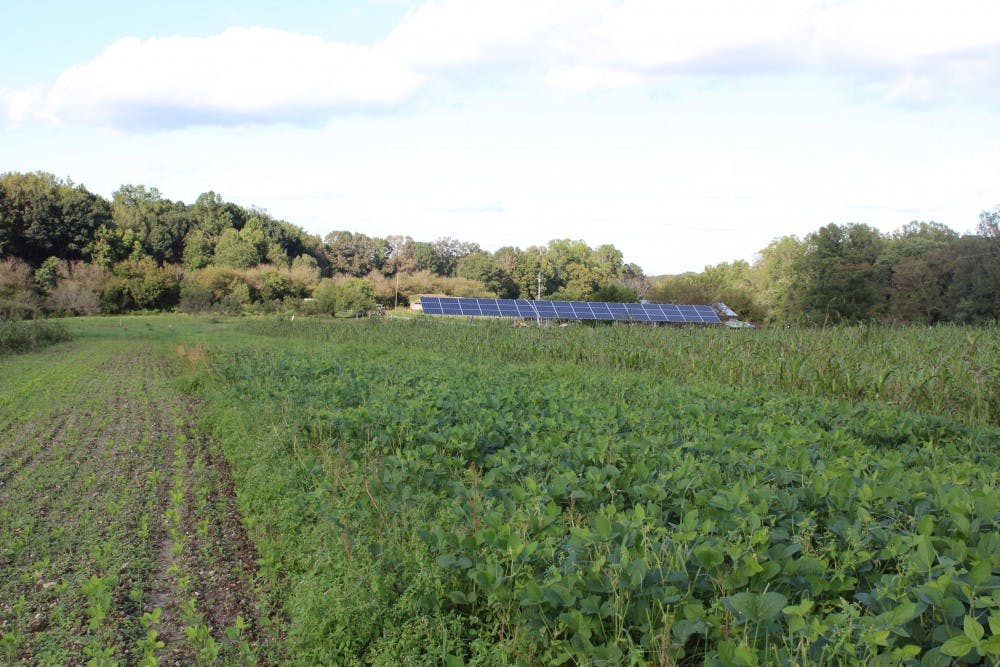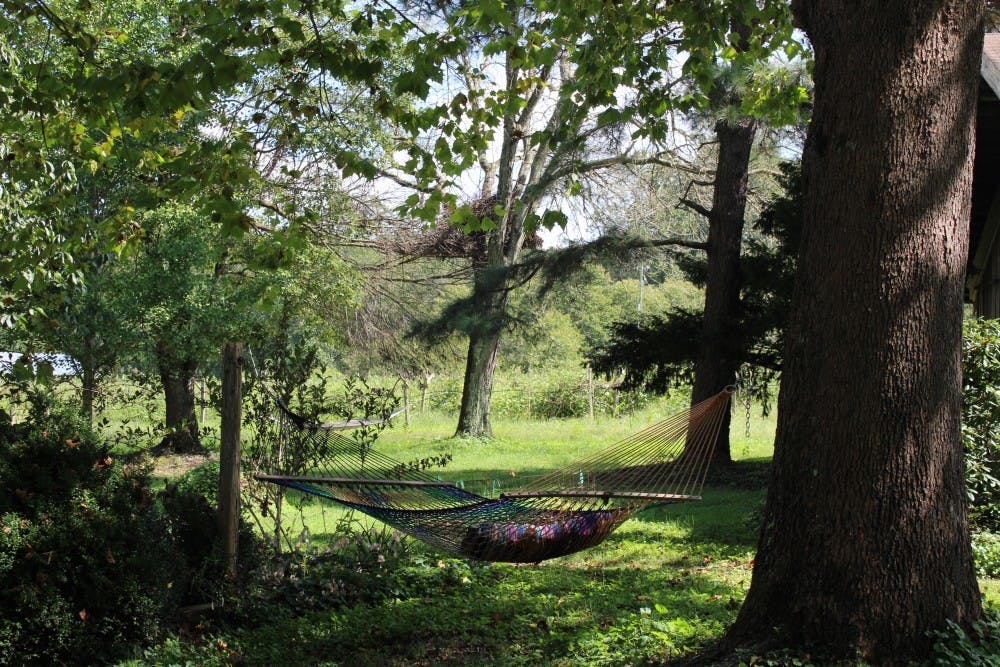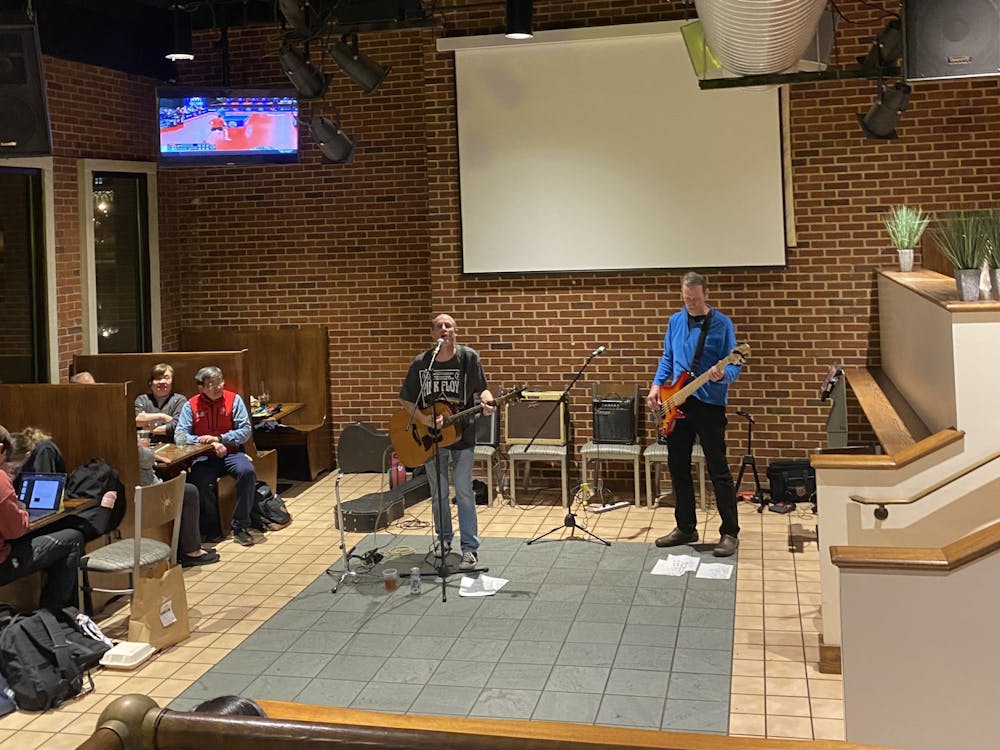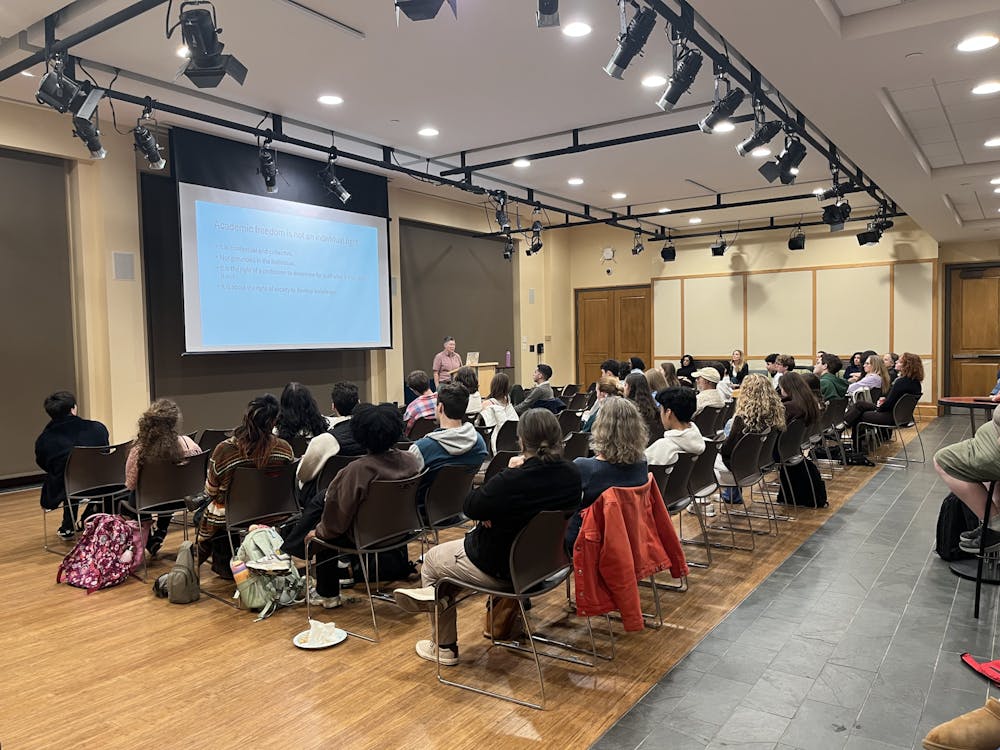Where does your sandwich come from? Normally, you might not know the answer to this question. But if you eat the spicy peanut tofu sandwich from the University of Richmond’s Passport Café, you can trace it back to Twin Oaks, an income-sharing commune just 45 minutes from campus.
Twin Oaks, located in Louisa County, about halfway between Richmond and Charlottesville, is an intentional community, home to 90 adults and 16 children. Founded in 1967, it is the oldest egalitarian community in America, according to the Atlantic. To top it off, the community makes terrific tofu that is served not only at Passport but also at Lou's Cafe and the Heilman Dining Center.
“Twin Oaks is largely regarded as one of the best tofu companies around,” said Josh Wroniewicz, the director of purchasing for University Dining Services, "before even considering that they are a local company.”
Wroniewicz said that Passport manager Karen Kourkoulis and her supervisor, Maya Vincelli, had requested Twin Oaks tofu specifically.
“Their tofu is fresh and clean-tasting, a little bit closer to what you might get in Japan than most of what’s available here,” Wroniewicz said. “We approached our local produce company, Cavalier Produce out of Louisa, and they agree to carry it for us.”
Because of its communal, income-sharing structure, life at Twin Oaks is very different from life elsewhere in America.
On a sunny Saturday in September, I drove out to the community to witness its unique system firsthand.
“All your food is covered, all your healthcare is covered,” Keenan Dakota, my Twin Oaks tour guide, explained. "One can have nothing … and live your life here, 'til you’re dead.”
Aside from free rent, food, healthcare, childcare and transportation, members receive $75 of spending money each month to use on things such as alcohol or trips to the movies.
This freedom from bills and rent payments is in high demand.
“We’ve had a waiting list of people wanting to join for the last 12 years,” Dakota said.
But, living at Twin Oaks does require serious commitment from its members. Each member over the age of 18 and under the age of 50 must work a quota of 42 hours each week.
Enjoy what you're reading?
Signup for our newsletter
Those hours can be spent doing a variety of work on one’s own schedule. Cooking, maintenance, building, giving tours and providing childcare can all count toward a member’s weekly quota.
Denis Doyon, a former Twin Oaks member who joined our tour, said he had once worked 12 jobs in one week.
Taking care of your own children can count toward your work quota at Twin Oaks, and members do not have to spend time cooking unless they choose to use it as part of their work quota, Dakota said. These communal benefits allow Twin Oakers to avoid some of the work typical Americans have to do around the house.
Working in the community’s tofu and hammock industries is another essential way members fit their hours in.
Hammocks used to be of utmost importance in the community, but emphasis has since shifted to the tofu industry. But in their heyday, hammocks brought in 80 percent of Twin Oaks’ income, Dakota said.
One of the community's biggest clients was Pier 1 Imports, which bought 35,000 hammocks from Twin Oaks every year for 30 years, Dakota said.
When that contract ended about eight or 10 years ago, the community members realized they needed to pivot to tofu. For that transition, Twin Oaks invested $1.75 million in a “tofu upgrade” that would help increase its production capabilities.
This upgrade absorbed all the oxygen in the community, Dakota said. The community hopes to build up its collective liquid assets, currently at $1.3 million in stocks, bonds and savings once the tofu upgrade is finished, Dakota said.
Tofu is responsible for about $250,000 of Twin Oaks’ current annual profits, which hover around $600,000 or $700,000, Dakota said. Dakota expects the tofu profits would double or triple once the upgrade is complete.
The tour guide explained that the main value of Twin Oaks was equality. The members of Twin Oaks are empowered politically and economically, as long as it doesn't affect equality.
That form of government involves community planners, members who make important community decisions on rotating 18-month terms. They base their decisions on feedback gathered from the Twin Oaks community as a whole.
No special degree or license is required to join the community or to become a planner. In fact, Dakota said that probably half of the members had been a community planner at some point.
One way community feedback is gathered is through bulletin boards in the community’s dining building, where members can write proposals and leave blank pages for feedback. They can also advertise parties and events they’re hosting or plan rides into town.
”It’s sort of our version of the internet,” Dakota said.
Occupying 465 acres, Twin Oaks has an unusual amount of autonomy. Its 105 bedrooms allow each member to sleep in their own space and spend leisure and work time in the many communal areas.

Solar panels on the Twin Oaks commune.
As far as food goes, the community is 60 percent self-sufficient, with a four-acre garden, 40 dairy cattle and plenty of chickens. And although it's still tied to the electric grid, Twin Oaks is increasingly solar-powered.
The community also owns a fleet of vehicles. It even has a 5,000-gallon gas tank.
“If civilization collapses, we’ll be good 'til our gas tank runs out,” Dakota joked.
After 50 years of history to fine-tune the community, there is very little turnover among Twin Oaks members. One of the reasons for this, Dakota said, was the community’s generous leave programs.
Aside from three weeks of vacation for all members, each member can save up hours that they work beyond quota and use them as vacation time. They can also choose to take personal affairs leave for a year, forgoing healthcare and allowance or a leave of absence for a family emergency, in which case the community would help fund transportation costs.
Members can also do work exchange on other communes, whether in Missouri, Mexico or communities such as Cambia and Acorn that are within biking distance.
But when members break community policies -- by consistently being in the “labor hole” by not fulfilling their weekly quotas, for example -- their statuses as members are jeopardized. In a situation such as that, there are community feedback sessions to discuss the problem.
“If the pot gets too hot, then people usually leave on their own,” Doyon added.
But these situations are few and far between. Twin Oaks members generally stick around or leave under amicable circumstances. There are few other places in the world that provide the same security and sense of community that Twin Oaks can.
“One of the things that Twin Oaks can provide,” Dakota said, “is you don’t need to worry. Being able to lift that concern off people is a great thing.”
Contact features writer Molly Brind'Amour at molly.brindamour@richmond.edu.
Support independent student media
You can make a tax-deductible donation by clicking the button below, which takes you to our secure PayPal account. The page is set up to receive contributions in whatever amount you designate. We look forward to using the money we raise to further our mission of providing honest and accurate information to students, faculty, staff, alumni and others in the general public.
Donate Now



